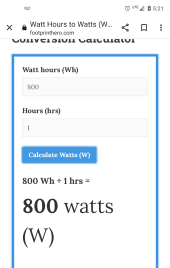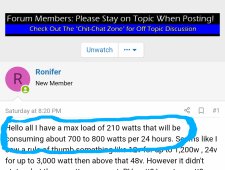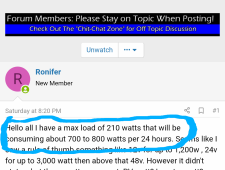800w or 800whr?
You seem to keep messing up units.
As for that particular unit they have smaller rated one that’s cheaper, who know you may add another lamp or add something else.
If the unit is on 24/7 the low idle consumption is pretty key.
Also there’s no need to run the panels in parallel (unless you have shading issues or want to point one east and one west) you’d be able to run them in series and save on conductor size for less losses.
As you said each person can set up their system the way they want, I just gave you my opinion on how I’d set mine up.
You seem to keep messing up units.
As for that particular unit they have smaller rated one that’s cheaper, who know you may add another lamp or add something else.
If the unit is on 24/7 the low idle consumption is pretty key.
Also there’s no need to run the panels in parallel (unless you have shading issues or want to point one east and one west) you’d be able to run them in series and save on conductor size for less losses.
As you said each person can set up their system the way they want, I just gave you my opinion on how I’d set mine up.
Last edited:





